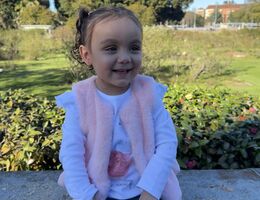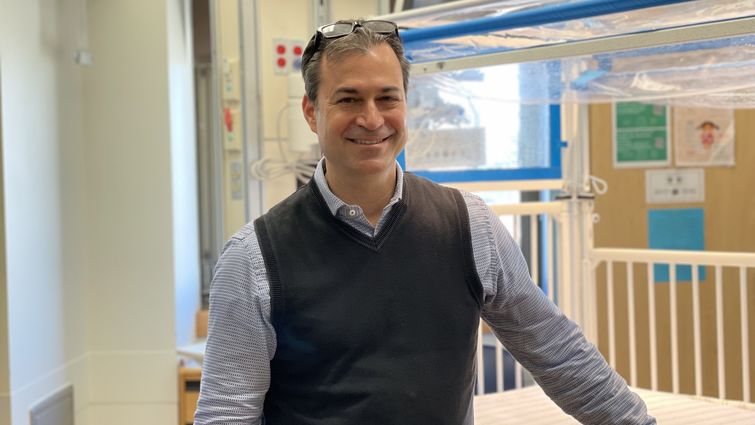

This story first appeared in the Fall 2023 edition of Leaps & Bounds.
During his pediatric residency, David Michelson, MD, was inspired by witnessing the transformative impact that neurologists had on children, solidifying his decision to specialize in pediatric neurology—a field that allowed him to combine his passion for medicine with his empathy for young patients. As the Chief of the Division of Child Neurology at Loma Linda University Children’s Hospital, Dr. Michelson leads a dynamic career marked by a diverse range of cases, including epilepsy, neurodevelopmental disorders, and rare genetic conditions. He actively engages in clinic consultations, conducts hospital rounds, and interprets electroencephalograms (EEGs) as part of his daily routine.
One of the most rewarding aspects of Dr. Michelson's career lies in his work within the neuromuscular clinics, where he develops close relationships with families and witnesses firsthand the remarkable progress achieved through medical therapies.
He recalls the transformation of an infant who, once destined for limited mobility and reliance on wheelchairs, ventilators, and gastronomy tubes, is now proudly walking thanks to gene therapy. Previously, parents faced daunting choices and little hope for children diagnosed with severe (type 1) Spinal Muscular Atrophy. However, the advent of newborn screening and disease-modifying therapies (DMT) has allowed Dr. Michelson and his team to provide life-saving interventions. While revolutionary DMT currently benefits a small number of children with rare diseases, Dr. Michelson maintains hope that similar treatment options will be developed for a larger population.
Dr. Michelson is an advocate for collaborative and multidisciplinary approaches to patient care. Working closely with specialists from various fields, such as genetics, neurosurgery, and psychology, he believes in providing holistic care that addresses the complex needs of his patients.
"Child neurologists truly value spending time with children and their families, relishing the opportunity to address a wide range of questions about neurological and developmental concerns. We are fortunate to be practicing during this dynamic and hopeful time.”
